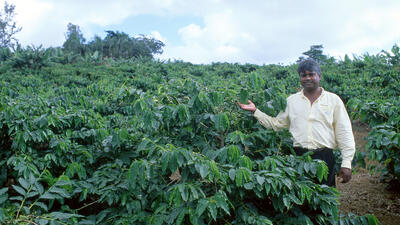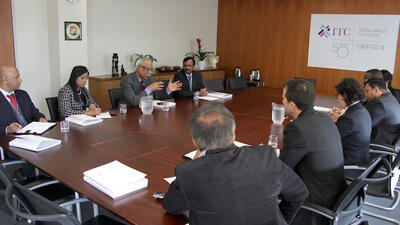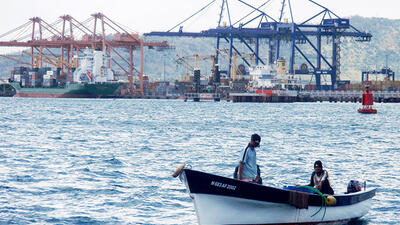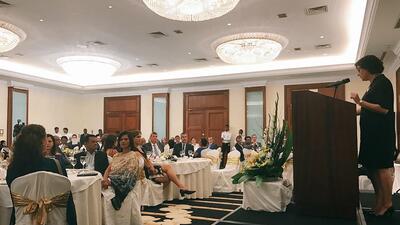Le commerce à Maurice affecté par les mesures non-tarifaires (en)
Developing a national food control strategy and accreditation of official laboratories are some of the steps that Mauritius must take to remove barriers to trade. These and other issues were discussed at a workshop in Mauritius on 24 January where the main findings of a study on non-tariff measures (NTMs) affecting Mauritian exporters were discussed, along with solutions and potential policy options.
The workshop was organized by the Mauritian Ministry of Foreign Affairs in collaboration with the International Trade Centre (ITC), which conducted the study, and brought together more than 60 participants from the public and private sectors in Mauritius, including government ministries, the Chamber of Commerce and Industry, the Chamber of Agriculture, the Joint Economic Council and the Board of Investment and Enterprise Mauritius.
Experts examined the need to evaluate the extent of NTM related problems in order to develop an action plan, looking at, for instance, permits and procedural obstacles. NTMs, which include import quotas, special licences, export restrictions, export subsidies, technical barriers to trade, sanitary and phytosanitary measures, and rules of origin, have become the principal impediment to international trade and can prove to be a major obstacle to local, regional and global trade in both goods and services as companies struggle to comply with an increasingly complex web of policies and at times opaque technical standards.
ITC’s NTM Programme Manager Poonam Mohun said: “Though Mauritian companies enjoy preferential access in the EU market, they complained about the technical and conformity assessments requirements which they find cumbersome in these markets. Labelling, namely the need for labelling in various languages, was also considered to be an important non-tariff barrier.’’
At the workshop participants heard that NTM obstacles encountered within the Common Market for Eastern and Southern Africa (COMESA), in which Mauritius is a member, are particularly burdensome. COMESA markets comprise only 6% of the share of Mauritian agricultural exports however 29% of burdensome NTMs were encountered within COMESA. The Mauritian Government said it will raise matters identified in the ITC NTM survey with relevant destination countries, particularly Kenya. Evidence in the report will be used to support the Mauritians in their discussions.
Assad Bhuglah, Director of the International Trade Centre of the Mauritian Ministry of Foreign Affairs, Regional Integration and International Trade, said: "The Mauritian authorities have focused their efforts on eliminating trade barriers over the past three decades. However, the biggest obstacle to the development of trade is non-tariff measures which are often difficult to detect."
Mondher Mimouni, Chief, Market Analysis and Research, ITC said: “ITC will provide more technical assistance to help Mauritius to combat non-tariff measures that increasingly appear in many forms. As long as these measures are applied to protect the lives of human beings, animals and plants, they are a legitimate aim which is justified. However, these measures may also be applied as a protectionist tool and, in this case, not only act as barriers to trade but could also have a negative impact on the level of competition in the economy."
ITC is working with the private sector in 27 countries, including Mauritius, to identify barriers to trade and provide advice to governments on how to overcome and reduce them. Understanding enterprises’ key concerns with NTMs can assist governments to better define national strategies and policies and take concrete steps to alleviate the problems, for example by building national capacity in complying with technical regulations.







